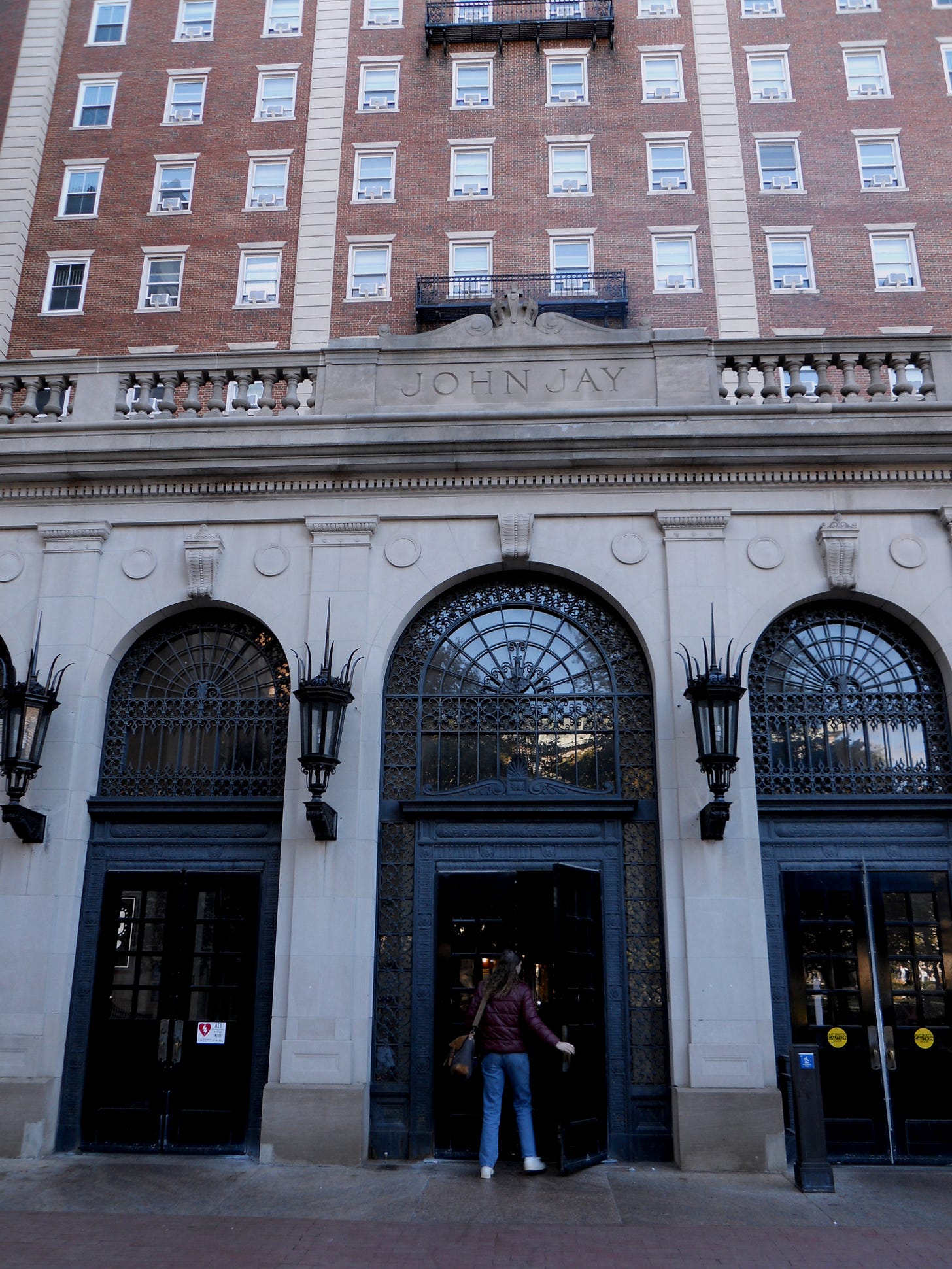The Dorm Disconnect
Columbia's housing system fails to create the same lasting communities other Ivies have.
Carman. McBain. Ruggles. East Campus. In the same way that I have been told I am supposed to do well in school, go to college, and get a good job, I have been told this is the ideal housing path for a Columbia student. Yet with the advent of each new school year, many of us respond to the “Where are you living?” question with an exasperated “Carlton…”
Dorm living is arguably the most iconic part of the college experience. Never again in our lives will sharing a room with a stranger and showering in a communal bathroom be so much fun (or even tolerated). But, perhaps as part of our neverending pessimism as Columbia students, we are much quicker to trash the dorms we live in than to appreciate them—but that’s not without good cause.
Our dorm situation is unique. On one hand, since rent is so expensive in New York City, over 94 percent of Columbia students live in dorms, one of the highest on-campus housing rates in the country. On the other hand, living in Manhattan means we lack the space for large, sophisticated residential housing systems.
At many schools, particularly in the Ivy League, undergrads are assigned to a house or college where they will live or remain affiliated with during their four years of study. At Yale, undergrads are affiliated with one of 14 residential colleges from the moment they arrive, and Princeton requires undergrads to live in one of seven residential colleges for their first two years. These houses usually have large dining halls, lively common spaces, and different segments where sophomores, juniors, and seniors live. In many ways, these houses become communities. Eating with the people you live with and forming connections unique to your dorm, especially across multiple years, is a very different college living experience than what Columbia has.
I stayed five days with my sister at Harvard’s Currier House, one of the university’s 12 undergraduate residential houses. House formals and socials are exciting events that students actually turn out for. The house’s student leadership is active and successful in getting students to engage with the House community. They frequently organize events like “food drops,” random late-night food deliveries that attract sleepy students to the common areas, sparking wholesome moments of community interaction. Residents participate in intramural sports with their houses and look forward to events like “Currioke,” a euphonic embrace of community.
Harvard’s houses occasionally even hold fancy dinners and, most surprisingly to me, facilitate interaction and quality time with their faculty administrators. This is in stark contrast to the experience of a Columbia dorm. RAs occasionally throw events, like a movie night with cookies. Occasionally, you may hang out in a common space with others on your floor, but rarely will there be more than a handful of people there. And who the hell knows what an RHD does?
My sister and her friends view their living arrangements with pride rather than dismay—experiencing the house system made me long for a more welcoming, home-like residential community at Columbia. Our lottery system ensures that no student will live in the same building all four years, making it difficult to build a lasting dorm community. With the exception of Carman and East Campus, Columbia’s dorms do not possess the community or culture present at many other schools. Carman and East Campus have only developed community because we have repeated the self-reinforcing mantra that they are social dorms, the de facto dorms first-years and seniors go for parties and gatherings.
Let us as residents take a more open and eager attitude to engage with our peers in our dorms and share experiences within our building. Whether it’s cooking in common spaces for your floor, inviting everyone to a party, or attending residence hall events, sharing in the collective experience of living in a dorm is the first step to creating living spaces with culture, tradition, and history that students will be eager to return to at the end of the day.
Owen Tesoro is a Senior at Columbia College majoring in Political Science and History.




